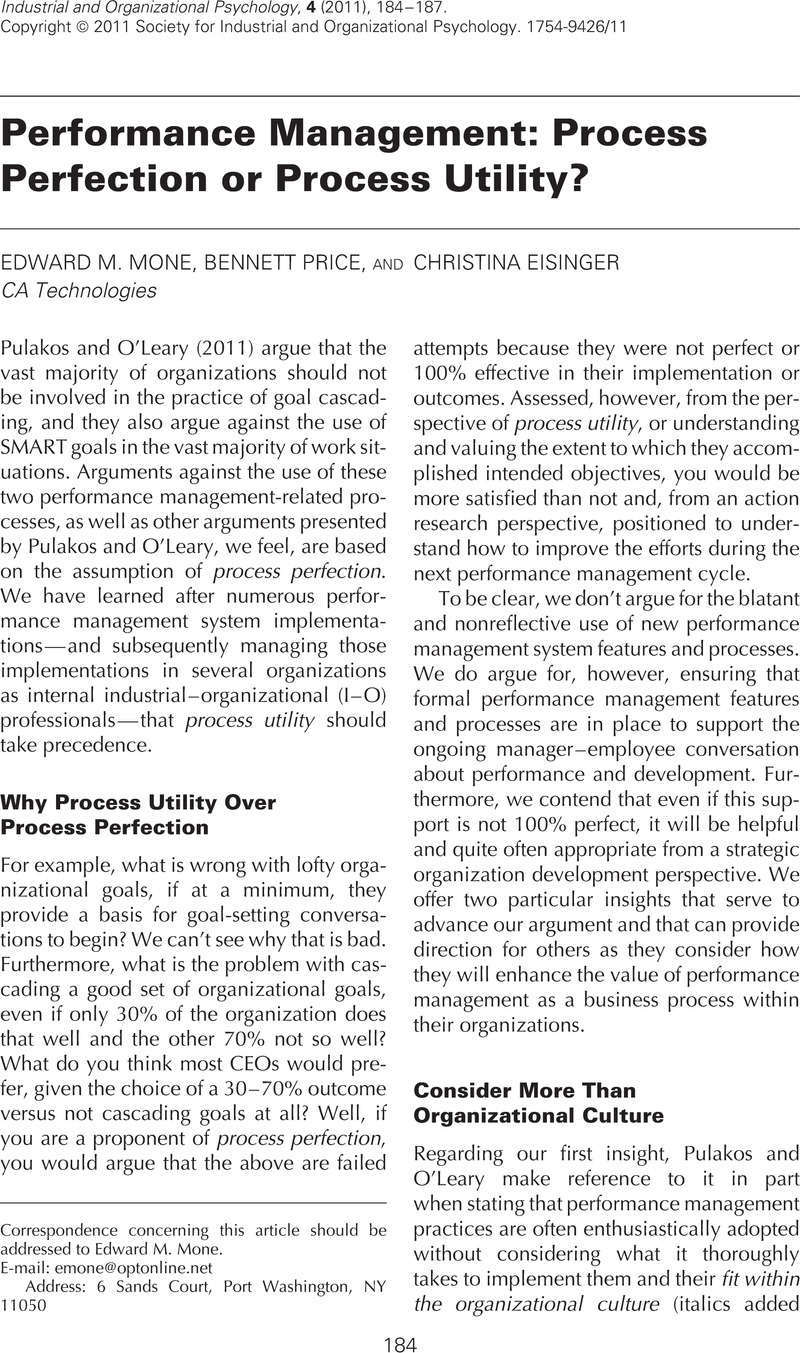Crossref Citations
This article has been cited by the following publications. This list is generated based on data provided by Crossref.
O’LEARY, RYAN S.
and
PULAKOS, ELAINE D.
2011.
Managing Performance Through the Manager-Employee Relationship.
Industrial and Organizational Psychology,
Vol. 4,
Issue. 2,
p.
208.
O’Leary, Ryan S.
and
Pulakos, Elaine D.
2011.
Managing Performance Through the Manager–Employee Relationship.
Industrial and Organizational Psychology,
Vol. 4,
Issue. 2,
p.
208.
Turk, Kulno
and
Killumets, Elar
2014.
Performance Management of Academic Staff on the Example of the Faculties of Economics in University of Tartu and in Tallinn University of Technology.
SSRN Electronic Journal,
Zhang, Lei
Yuan, Jingfeng
Xia, Nini
Bouferguene, Ahmed
and
Al-Hussein, Mohamed
2020.
Improving Information Sharing in Major Construction Projects through OC and POC: RDT Perspective.
Journal of Construction Engineering and Management,
Vol. 146,
Issue. 7,
Botelho, Carlos
2024.
The influence of performance-driven cultures on performance appraisal best practices effectiveness.
International Journal of Productivity and Performance Management,
Vol. 73,
Issue. 4,
p.
1187.





